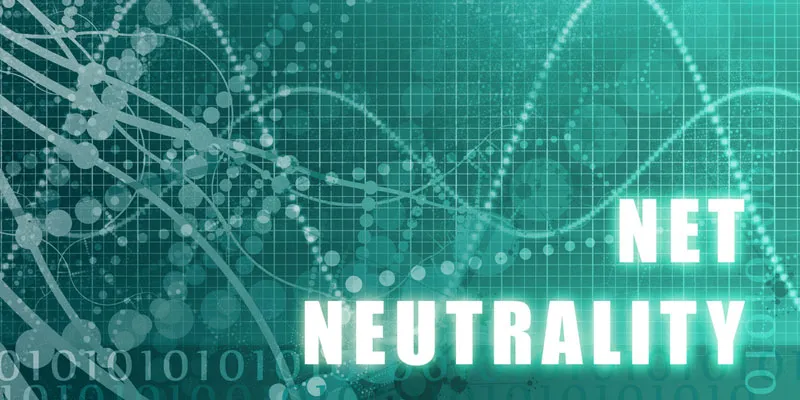Fueling the Net Neutrality debate: OTT vs Telcos
This article is authored by Dr. D. Manjunath, Professor, Indian Institute of Technology Bombay, and Dr. V. Sridhar, Professor at the International Institute of Information Technology Bangalore. Views are personal.
The principle of Net Neutrality pits internet firms (also called Over The Top, or OTT firms) and their users on one side against telecom operators (or telcos) on the other. A recent endorsement of Net Neutrality by President Obama has stirred the pot in this debate, at least in the US. It needs to start here in India as well.

image credit: ShutterStock
“All bits are created equal’ is the design principle of the internet to simplify packet processing. It has also become its service philosophy so that the bit pipes enable innovation and innovators of all types and sizes and has come to be known as the principle of Net Neutraility. Thus Net Neutrality means that a service provider such as a telco has to treat all data bits in the same manner without discrimination, restriction or interference irrespective of their source, destination and the application that generated it.
This in turn means that legal content should not be blocked or throttled, i.e., a telco should not intentionally drop or slow down certain types of traffic. It also means that prioritization by payment (by the OTT provider or its subscriber) is taboo, i.e., a telco cannot speed up some traffic, thereby slowing others, for a fee. Telcos argue against Net Neutrality citing inadequate capacity on the network for accommodating all types of traffic at the same speed and hence the need for prioritization including blocking and throttling.
Mobile operators in India held on to their walled garden approach in the Value Added Services (VAS) era and passed on a meagre 30-40 per cent of the VAS revenue to the VAS provider while retaining a significant margin. However, the era of smartphones, the app economy, and wireless broadband changed this. On the one hand, VAS providers are transforming themselves into App makers and OTTs to exploit the power of the internet and avoid the clutches of telcos. On the other hand, the telcos are advertising “paid fast lanes” for some traffic like YouTube and WhatsApp and also practicing “zero-rating” where certain defined content (e.g. the operator’s own app) is not charged to the end user even in limited or metered data plans and tariffs, thus providing subtle discrimination and violation of the neutrality principle.
Regulators everywhere are trying to catch up on this debate. The debate is vigorous in some countries. There were 1.1 million comments on the proposal by US Federal Communications Commission (FCC) Chairman that telcos should be prohibited from blocking any internet content but be allowed to make "commercially reasonable" deals with content providers to ensure smooth and fast traffic. In India, the debate is just about beginning; the first reaction from the Telecom Regulatory Authority of India (TRAI) is against any regulation on OTTs but it has recently floated a pre-consultation to solicit inputs. Clearly, the subject needs broader attention and this is the time to look at this thorny issue and find a solution suitable for all stakeholders: telcos, OTTs and, of course, end-users.
The telcos are naturally upping the ante. AT&T raised pressure on FCC to work on new Net Neutrality rules, saying it would stop investing in new high-speed internet connections in 100 US cities until the web traffic rules are settled.
Events such as the Mobile India 2015 conference, to be held in Bangalore on January 9, will discuss ramifications of this issue for the India market (the conference app, powered by Carrot, is available for download in Google Play Store). Several telcos and their trade organisations have already made representations to TRAI and the government to allow charging for OTT services.
About the Author
Dr. Manjunath is Professor in the Department of Electrical Engineering at IIT-Bombay since 1994. Prior to joining IIT Bombay, he was a Post Doctoral Fellow in the Department of Computer Science, University of Toronto, Toronto, Canada. Prof. Manjunath is an accomplished scholar with two published books, and advises the Telecom Regulatory Authority of India on policy related issues.
Dr. V. Sridhar is Professor at the Centre for IT and Public Policy at the International Institute of Information Technology Bangalore. His books, The Telecom Revolution in India: Technology, Regulation and Policy and The Dynamics of Spectrum Management: Legacy, Technology, and Economics, have been published by Oxford University Press.







